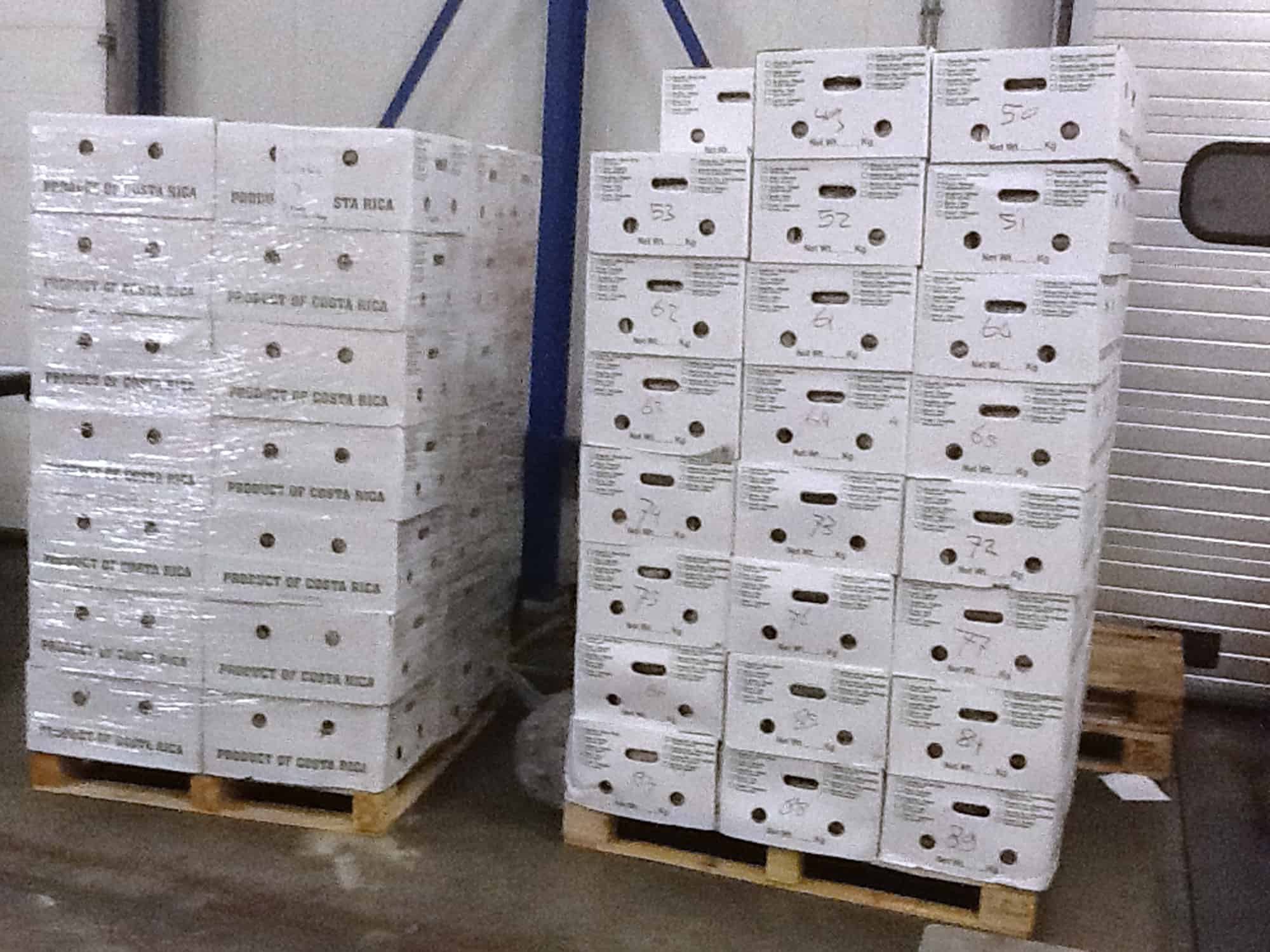Six years after the Chinese government donated two X-ray scanners to detect drugs and other contraband hidden in Costa Rican exports at the Limón port, authorities have yet to bring them online.
Meanwhile, port authorities in Europe have made several multi-ton cocaine seizures after inspecting imported food and flowers from Costa Rica over the past year, and authorities in New York recently uncovered a network that smuggled cocaine out of Costa Rica in boxes of cassava.
Estimating the quantity of drugs smuggled out of Costa Rican ports is largely a guessing game. But it’s clear that authorities have yet to implement all the tools at their disposal to detect illegal export cargo.
National law enforcement officials report literally tons of cocaine seized on the high seas but almost none confiscated at Costa Rica’s ports, which are responsible for moving more than 80 percent of the country’s exports.
After Costa Rica opened diplomatic relations with China in 2007, the Chinese government donated two X-ray scanners at the request of the Oscar Arias administration (2006-2010). But since their delivery in 2009, the scanners have scarcely been used due to a bevy of technical and infrastructure challenges, according to Vice Minister of Revenue Fernando Rodríguez.
Today, the port of Limón still does not have Internet and electrical connections for the scanners. Instead, the devices must rely on a diesel generator for power, and they can’t be operated in the rain.
In December 2014, the daily La Nación reported that the cost of maintaining the scarcely-used scanners was $400,000 annually.
Rodríguez told The Tico Times that the scanners are used but only when there’s a concern about a specific container. The vice minister said he didn’t think it was necessary to scan all cargo that passes through Limón’s ports. But the Chamber of Exporters, CADEXCO, has expressed concern about the port’s deficiencies in inspecting exports.
CADEXCO criticized the government for being slow to get the scanners fully operational. The business group worried that more publicity about drugs found in cargo could damage Costa Rica’s reputation with export buyers in the U.S. and Europe.
Some members of CADEXCO have taken their own security measures to keep would-be smugglers from hiding drugs or other contraband in their cargo while it’s on its way to the port. But a company’s ability to pay for these additional precautions varies greatly, according to the chamber.
“We need to find a way to promote our products in a way that safeguards their quality abroad,” a CADEXCO representative told The Tico Times. “One solution is the use of scanners in customs to keep Costa Rican products from being used as a Trojan Horse” for illegal goods.
Over the past year, authorities at foreign ports have made several large drug seizures involving Costa Rican agricultural exports, highlighting the potential problem. Most recently, authorities in New York accused the owners of a Queens Pizzeria of masterminding a transatlantic smuggling operation with cocaine imported in shipments of Costa Rican cassava.
In December 2014, Dutch authorities in Rotterdam uncovered 3.5 metric tons of cocaine hidden in a shipment of cassava from Costa Rica. And in May 2014, Spanish authorities found 2.5 metric tons of cocaine in boxes of pineapples from Costa Rica.
Vice Minister Rodríguez said the government was aiming to have the X-ray scanners fully operational by the end of the year and said X-ray scanners would be required at other ports, as well, in the near future.
“It’s in everyone’s interest that drugs and arms not be transported through our ports,” Rodríguez said.






